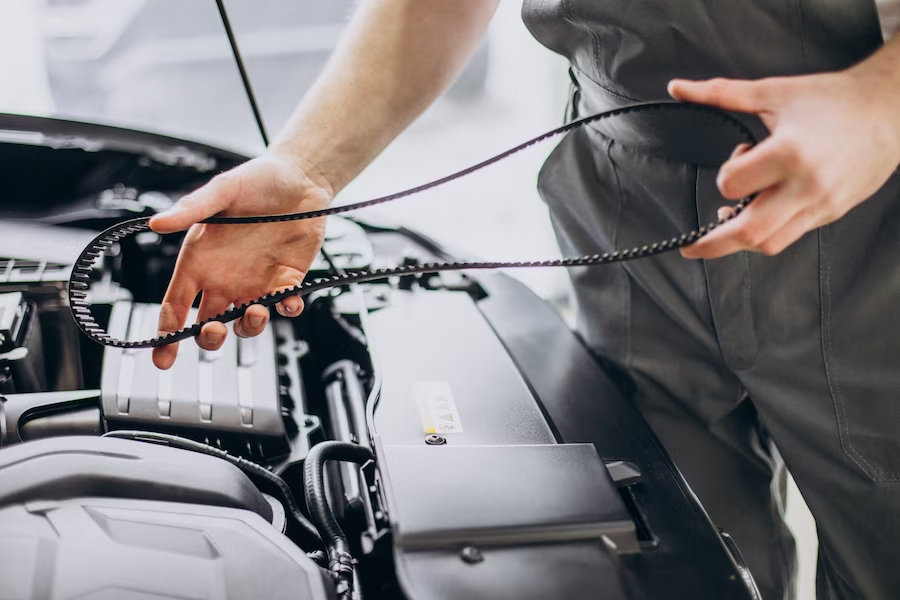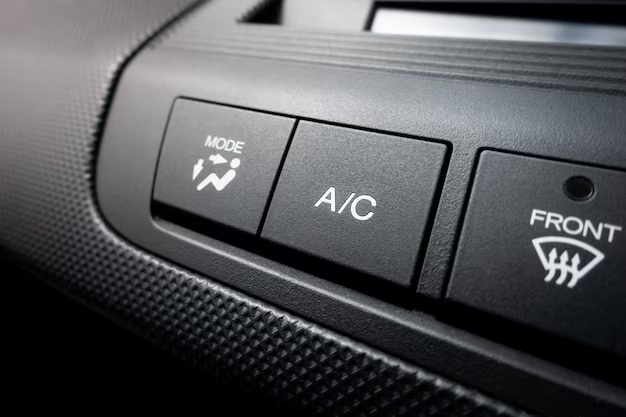When it comes to car maintenance, even the seemingly smallest signs can indicate a need for attention. One such sign is a squealing noise from your car when you switch on the air conditioning (AC). In this article, we will explore this issue in-depth to help you understand what it implies, its causes, and the possible solutions to prevent further damage to your vehicle.
Understanding the Squealing Noise
The first step towards resolving this issue is understanding what it is. The squealing noise is typically a high-pitched sound that originates from your vehicle’s engine compartment. It often happens when the AC is turned on, indicating a potential problem with the AC system or related components.
The Core Components and Their Roles
Before discussing the potential causes, let’s get familiar with the key components involved in your car’s AC system:
- AC Compressor: It pressurizes the refrigerant and circulates it within the system;
- Compressor Clutch: This connects and disconnects the drive power to the AC compressor;
- Serpentine Belt (Drive Belt): It transfers the engine’s rotation to the AC compressor and other accessories;
- Idler Pulley: It maintains the correct tension in the serpentine belt and guides it;
- Bearing: It’s found within the idler pulley and ensures smooth operation.
Understanding these components will help you grasp the probable causes and solutions we will explore next.
Decoding the Causes of Squealing

Let’s delve into the most common reasons behind the squealing sound when your car’s AC is on:
- Worn-out Serpentine Belt: A worn or loose serpentine belt is often a prime suspect. Old belts can become glazed or frayed, causing them to slip and create a high-pitched squeal;
- Faulty Compressor Clutch: If the compressor clutch is unable to engage or disengage from the AC system correctly, it can produce a squealing sound;
- Poorly Lubricated AC Components: Insufficient lubrication can increase friction between moving parts, resulting in a squealing noise;
- Bad AC Compressor: A failing AC compressor can also result in a squealing sound due to internal component wear or insufficient lubrication;
- Damaged Idler Pulley or Bearing: If either of these components is damaged or worn, it can lead to a squealing noise.
Recognizing the Type of Squealing Sound
The type of squealing sound can provide clues to the underlying problem:
- Constant Squealing: It could indicate a worn-out serpentine belt or a damaged idler pulley;
- Intermittent Squealing: This often suggests issues with the AC compressor or the compressor clutch;
- Squealing Only When AC is On: If the squealing only occurs when the AC is on, it could point towards a problem within the AC system itself, like a bad compressor.
Detailed Steps to Address the Squealing Noise
Once you’ve identified the type of squealing sound, you can take the following steps to resolve the issue:
- Inspect and Replace the Serpentine Belt: Check the belt for any visible signs of wear and tear such as cracks, fraying, or glazing. If these signs are evident, it’s time to replace the belt;
- Check the Compressor Clutch: You may need to consult a professional for this. If the clutch is not engaging or disengaging properly or appears worn out, it will need to be replaced;
- Lubricate AC Components: Regular lubrication can help reduce friction between moving components in the AC system, preventing the high-pitched squeal;
- Replace the AC Compressor: If the compressor is the problem, you’ll need to replace it. Given its complexity, this should be done by a professional;
- Inspect and Replace the Idler Pulley or Bearing: These components can be inspected for visible damage. If found faulty, they should be replaced promptly.
These steps are explained in detail in this video tutorial for your better understanding and practical guidance:
Preventive Measures to Avoid the Squealing Noise

It’s always better to prevent a problem than to fix it. Here are some preventive measures you can take:
- Regular Vehicle Maintenance: Regular maintenance can help identify potential problems before they escalate;
- Regular Lubrication of AC Components: Ensuring all parts of your AC system are adequately lubricated can prevent friction-related squealing;
- Prompt Attention to AC Issues: If your AC begins making unusual noises, have it inspected immediately to prevent further damage.
Conclusion
The squealing noise when the AC is on should not be ignored as it could indicate serious issues requiring immediate attention. Regular maintenance, early identification, and timely resolution are key to keep your car’s AC system functioning efficiently and noise-free.
FAQ
You can technically still drive, but it’s not advisable. The squealing noise indicates a potential issue that needs to be addressed. Ignoring it could lead to more serious, expensive damage.
Costs vary depending on the problem. A belt replacement might cost between $100 to $200, while a compressor replacement could range from $500 to $1000.
Yes, for simpler issues like a worn-out belt or poorly lubricated components. For more complex issues, such as a faulty compressor, professional help is recommended.
It’s advisable to have your AC system inspected at least once a year, or as recommended by your vehicle manufacturer.
